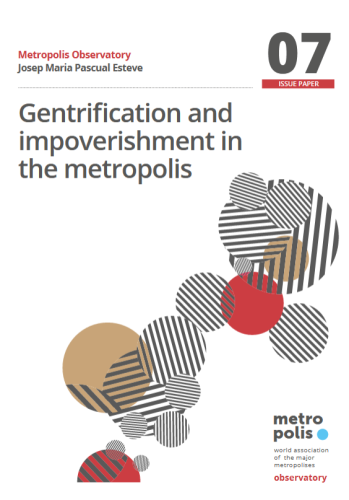Gentrification and impoverishment in the metropolis
One of the main challenges faced by large cities and metropolitan areas is the contradiction between the key role they play in the world economy and global society, and the unequal distribution of the benefits brought by this role within each metropolitan area. One of the most visible aspects of this inequality is gentrification, a process that nearly all the metropolises in the world have experienced to some extent or other. In broad terms, gentrification consists of the expulsion of inhabitants from impoverished urban neighbourhoods after the areas are chosen for urban regeneration and property development projects, becoming inaccessible to the original population due to higher housing prices and the corresponding goods and services.
The right to adequate housing for all has been recognised in numerous United Nations conventions, such as the Universal Declaration of Human Rights (UDHR), the Convention on the Elimination of All Forms of Discrimination against Women (CEDAW) and the 2030 Agenda, which incorporates the fundamental objective, in Goal 11, of ensuring “access for all to adequate, safe and affordable housing and basic services and upgrade slums”.
- Communities



